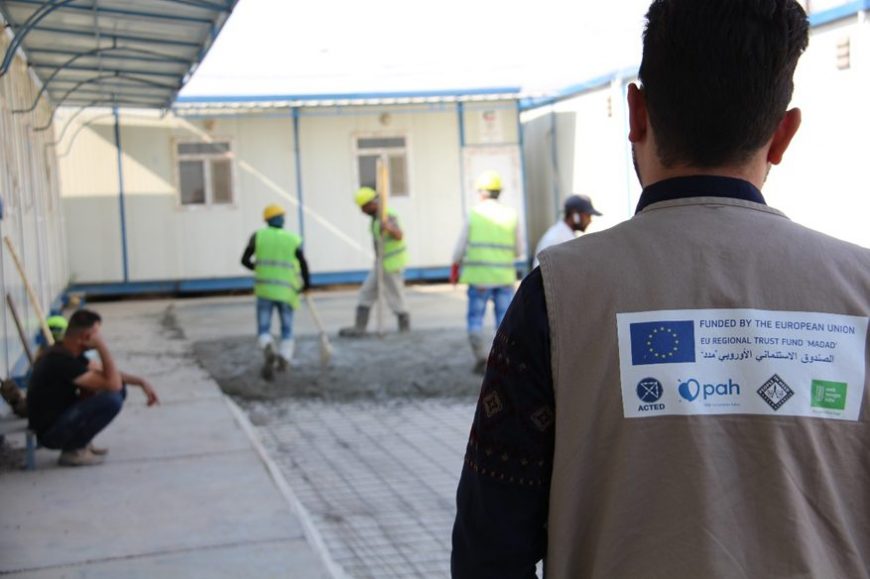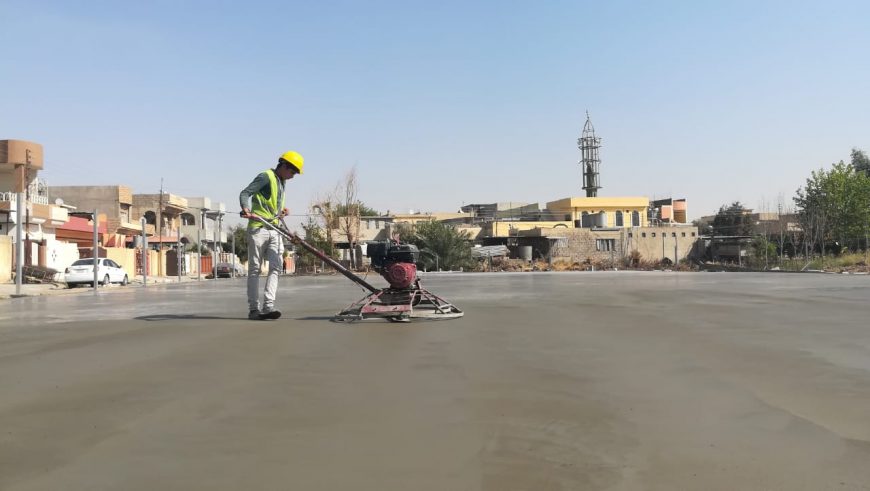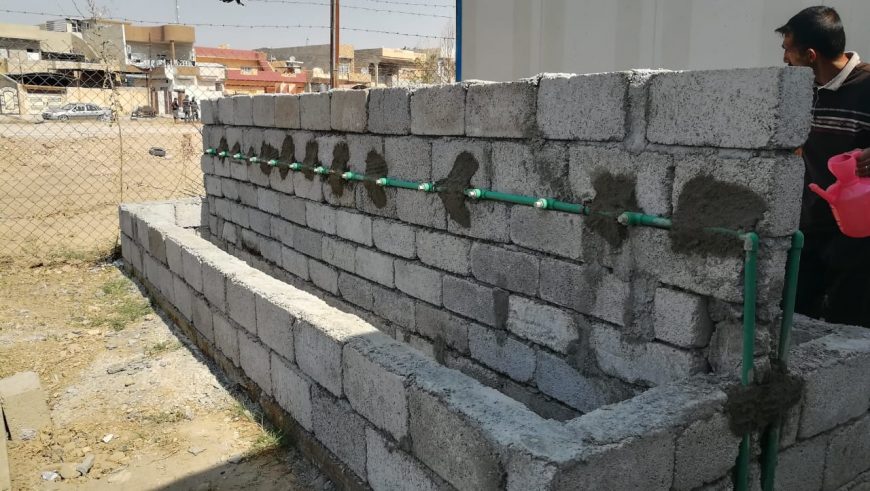Soon after ISIL marched into Mosul City in northern Iraq in 2014, the classrooms and hallways of the city’s schools fell silent. After great efforts by Iraqis, those who remained and those who have returned, those same classrooms and hallways are coming back to life.
ACTED and its consortium partners have supported the rehabilitation of Mosul City following the widespread destruction of infrastructure. Front and centre to these efforts was a drive to reopen the city’s schools; a crucial step in convincing displaced communities that they have a future in their city.
Recovering from a legacy of occupation
In 2014, Mosul became a key stronghold for ISIL in Iraq. During the three-year occupation, buildings were reduced to rubble and thousands were left without access to basic services such as water, electricity and healthcare.
Four years later, reconstruction efforts are ongoing. As families return from years of displacement, humanitarian organizations are working to ensure that they can return to a safe environment.
Through a consortium of four partners (ACTED, WHH, PIN, PAH), funded by the European Union MADAD fund, ACTED implemented a series of ‘Quick Impact Projects’ (or QIPs) to improve the access of conflict-affected communities to key services and communal infrastructure.
One such project was the rehabilitation of Al-Kuwait Primary School in East Mosul.
Restoring Mosul’s caravan school

Without electricity and a safe water supply, at first the children who attended Al-Kuwait Primary School in East Mosul had to rely on natural window light each day to illuminate their classrooms. The water which ran from taps in the school bathrooms ran brown with dirt.
Overcrowding was also an issue. In a city where conflict brought such high levels of destruction to buildings, caravans made of plastic and metal were used to create make-shift classrooms. On average, 50 students were crammed into one caravan ‘classroom’ with little room to move around comfortably. Outdoor areas were often flooded and there were no safe areas for the children to play.
Before, children had to bring water from home to drink and to use in the toilets.
ACTED teams, with advice and support from workers in the local community, devised a plan to rehabilitate and expand the school’s facilities. This included: building a fence around the school site, rehabilitated the playground area in between the caravans, and constructed a sports field, creating safe and dry areas for the children to play in. ACTED also increased the number of caravans to address issues of overcrowding in classrooms, and electrical repairs have been completed. ACTED repaired and improved the water supply and increased the number of bathrooms, which ensured both children and staff had secure hygiene facilities to use while at the school.

Education awaits the children of Mosul
In the weeks that followed the completion of the school’s rehabilitation, ACTED teams went back to Al Kuwait in East Mosul to speak to families from the local area.
As girls also attend the school, having a fence has made us feel more secure and stops teachers from feeling worried about the young boys who passed by the front of the school.

Now a fully functional school, the children have reenrolled, and the playground is filled with the buzz of excited students.
Thanks to support from the EU MADAD fund, ACTED has been able to implement four other QIPs much like this one in response to needs identified by communities across the city of Mosul, in hopes of rebuilding a safe and stable environment.
